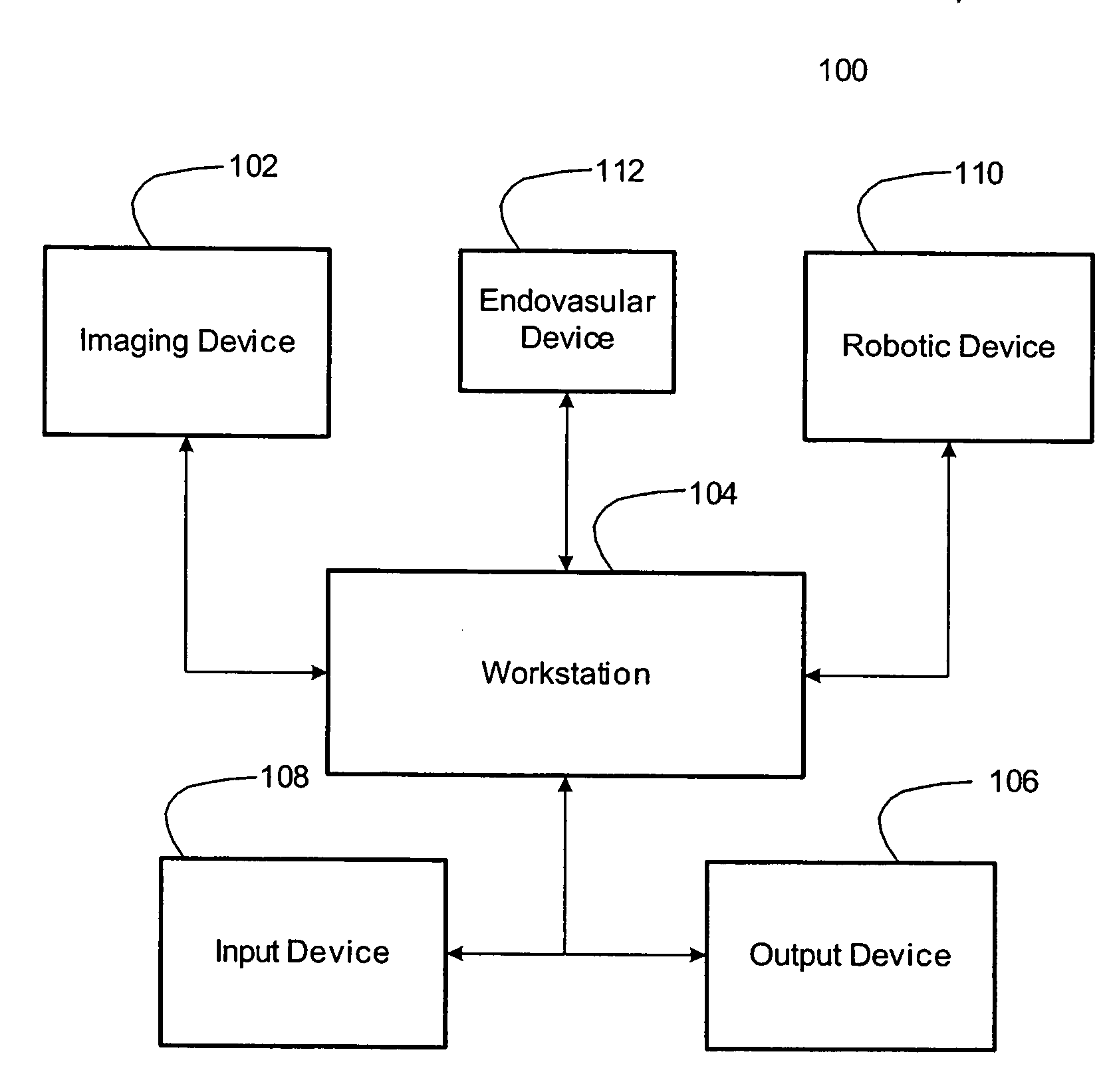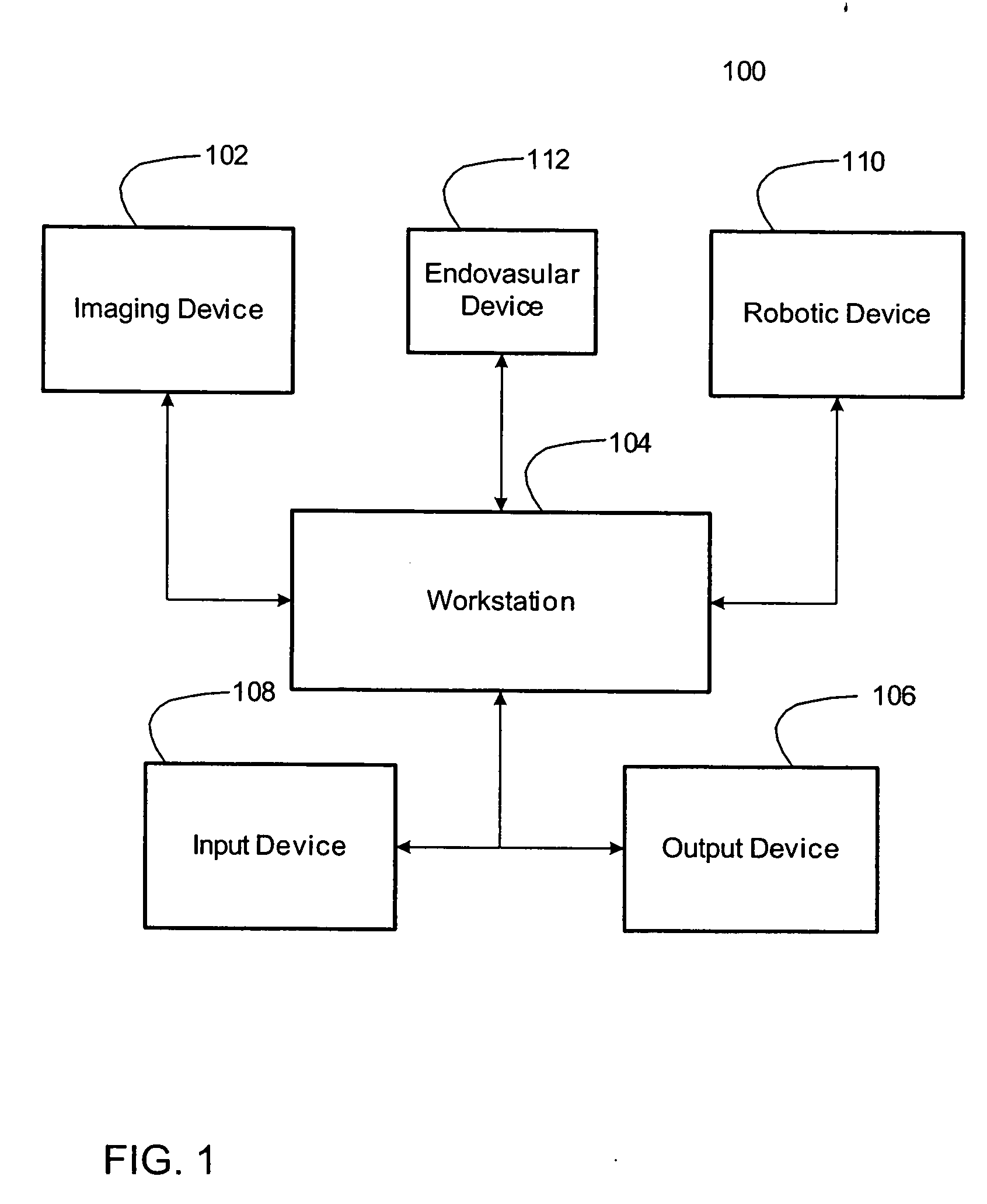System for autonomous robotic navigation
a robotic navigation and autonomous technology, applied in the field of robotic systems, can solve the problems of increasing complexity of the technology and devices, and achieving a great degree of dexterity and accuracy
- Summary
- Abstract
- Description
- Claims
- Application Information
AI Technical Summary
Benefits of technology
Problems solved by technology
Method used
Image
Examples
Embodiment Construction
[0011] The present invention provides a system for autonomously navigating or manipulating a navigable device, such as an endovascular device, including a catheter or probe, through a luminal structure, such a subject's anatomical structure. Moreover, the term “subject” is used to denote any organism having luminal anatomical structure, human or otherwise. Although the present invention may be described by way of example in relation to endovascular procedures, it is understood that the present invention is applicable to other types of procedures and in other, non-medical fields, and is therefore not limited thereto.
[0012] Referring to FIG. 1, a system 100 for autonomously navigating a navigable device through a luminal structure includes an imaging device 102 communicatively connected to a workstation 104. The imaging device 102 is any device that may be used to obtain or produce an image or image data of a luminal structure for use in defining the volume of interest or the boundar...
PUM
 Login to View More
Login to View More Abstract
Description
Claims
Application Information
 Login to View More
Login to View More - R&D
- Intellectual Property
- Life Sciences
- Materials
- Tech Scout
- Unparalleled Data Quality
- Higher Quality Content
- 60% Fewer Hallucinations
Browse by: Latest US Patents, China's latest patents, Technical Efficacy Thesaurus, Application Domain, Technology Topic, Popular Technical Reports.
© 2025 PatSnap. All rights reserved.Legal|Privacy policy|Modern Slavery Act Transparency Statement|Sitemap|About US| Contact US: help@patsnap.com



